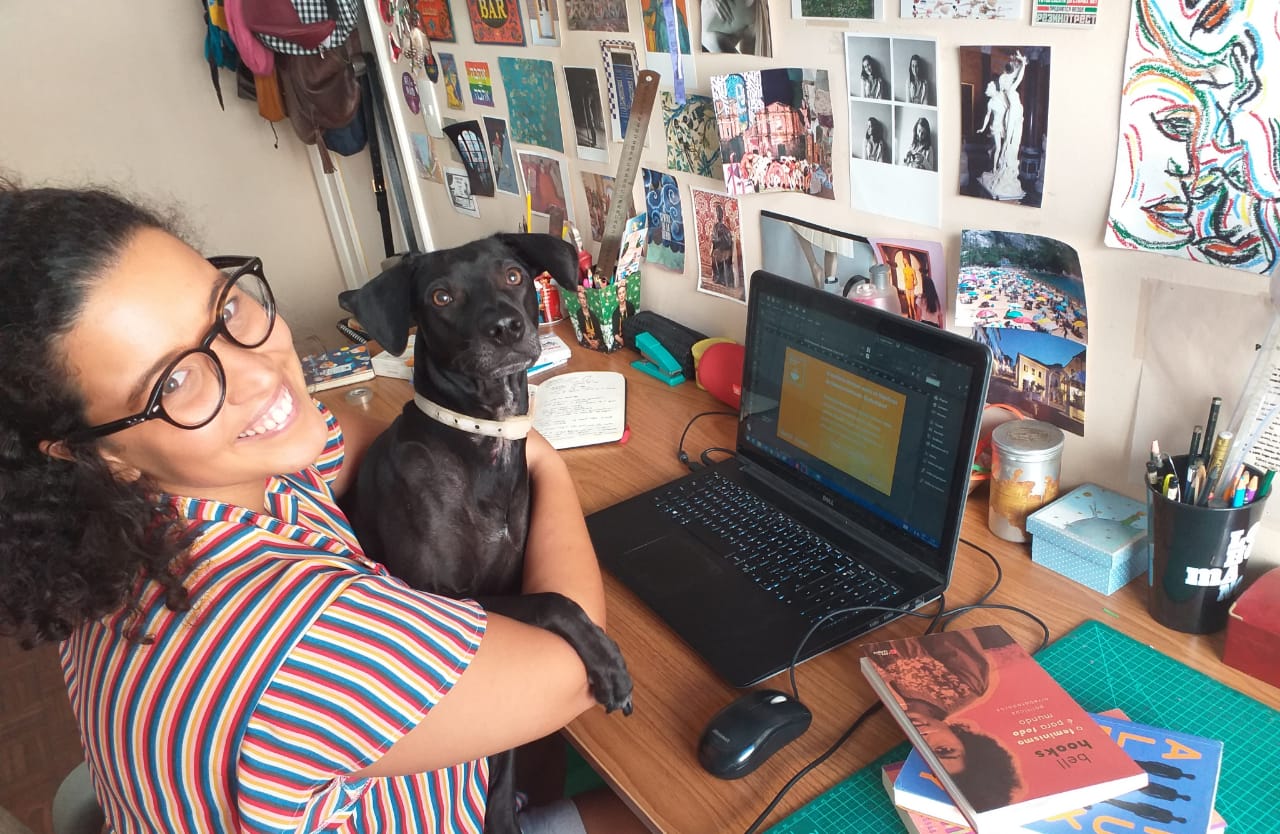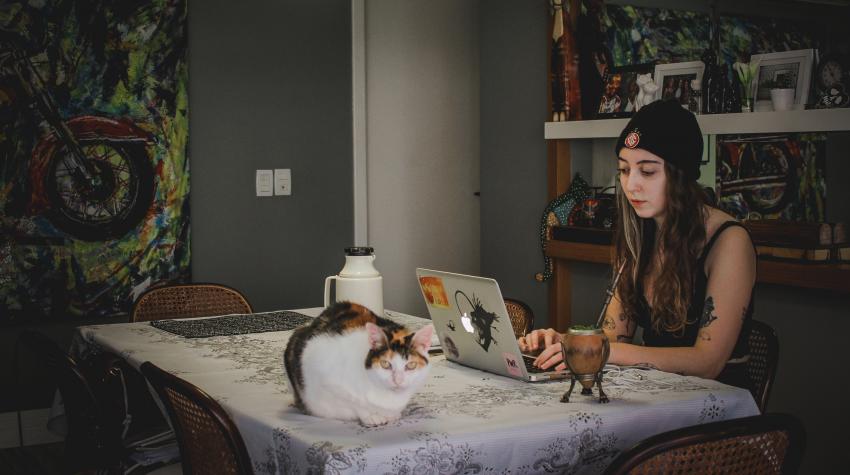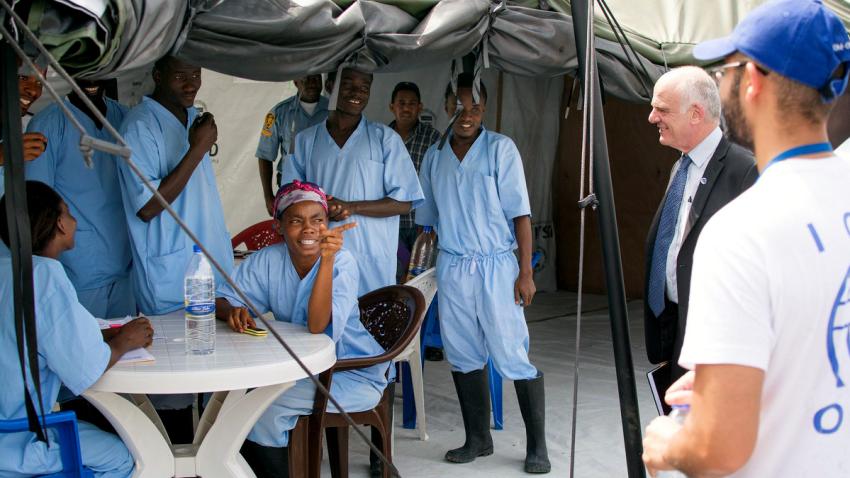"The day the earth stopped", music by Raul Seixas, inspired Gabriella de Azevedo Carvalho, 25 years old, to name the dog she adopted the week she started quarantining because of the COVID-19 pandemic. At almost the exact same time, she also began work as an intern at the United Nations Information Center Nations for Brazil (UNIC Rio). Since then, her dog Raul has been her daily companion on her home office journey as a graphic designer for UNIC Rio.
Gabriella is a lawyer who is currently studying industrial design while working on a Master of Arts degree in Human Rights Public Policy. Since April she has been responsible for the design of the team’s social media materials. She creates new materials or translates and adapts materials produced by the Department of Global Communications at New York Headquarters. She is also learning how to edit videos.

Gabriella de Azevedo works and studies in her room during the pandemic. Photo courtesy Clara Pavetits.
Even Gabriella's interview for the position was done virtually, on the eve of the closure of the office to the public. And physical distance has been her biggest challenge, because she has not met anyone on the team in person so far. “I started the internship in the middle of the COVID-19 pandemic. The beginning of every internship is always difficult, but starting one during the outbreak of a pandemic, having to do everything online, is very different from anything I have experienced”, she said.
Despite not having met her colleagues in person yet, Gabriella arrived at a time when the performance of the office took a leap: the audience on the UN Brazil website and social media grew 40 per cent, in large part due to the increase in material that had been produced related to COVID-19.
Joana Gutterres Berwanger is part of this collective effort, now working remotely from her home in Porto Alegre, in the South of Brazil, where she returned since the entire office started to function virtually. “I consider human contact essential to maintain and consolidate relationships so, therefore, I consider spaces like the office so important. I feel that remote work limits us a lot vis-à-vis our ability to develop this type of relationship”, she said.
To compensate, Joana meets the team at the weekly virtual meeting and receives guidance on her work by e-mail, video chat and via message apps. At the age of 24, she has a degree in journalism and has been a member of the team since November 2019 – writing stories, producing follow-up reports on news and social networks about COVID-19 and translating stories into both Portuguese and English. Accompanied by her cat Duna, she says that she prefers her work writing and editing stories, and learning how the press office functions. One of her articles was even published by the Headquarters website, which highlighted how the pandemic was impacting delivery workers, as they face a daily fear of becoming infected with the virus.
“I had never worked effectively in a press office, so I thought it was very important to learn more about interaction and dynamics. In addition, being able to deal with information of an international nature gave me a much broader perspective on what is happening around the world”, she said.

Tomás Boim finished his internship in UNIC Rio in May 2020. In the middle of a pandemic, he said goodbye to the team via videoconference. Photo courtesy Marianna Muniz
Tomás Cardoso de Aboim, a 24-year-old graduate in social communications, also found it to be particularly challenging to work as an intern during the pandemic. His internship formally ended in May 2020 when UNIC Rio was still closed to the public. “Having to readjust to such an emotionally and politically unstable moment was difficult”, he said. Tomas even had to say goodbye to the team during its weekly an online meeting, instead of in person.
Working on content production, Tomás provided audiovisual coverage of events before the onset of the pandemic and then dedicated himself exclusively to video editing and subtitling, in addition to translating texts. The projects he liked most were the ones that challenged him and took him out of his comfort zone, like producing, filming and editing a video or investigating a story. For him, the coverage of activities for Human Rights Day in the Maré favela in Rio de Janeiro was also a unique opportunity.
He revealed what he liked most about the internship at UNIC Rio: “It is an open environment to suggestions and ideas. I believe that the emphasis the office places on human rights and the fact that all the employees were women for most of my internship was strongly symbolic, and led to the creation of an harmonious, respectful environment that was open to dialogue”. At the time of the internship, Tomás was the only man on the team because another UNIC Rio stadff was on assignment in Syria.




